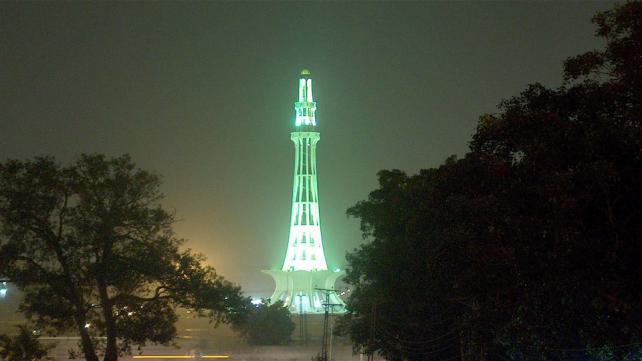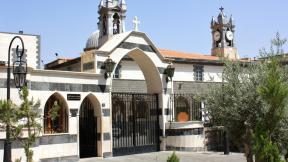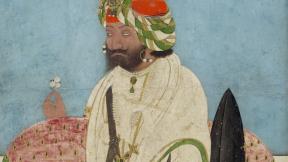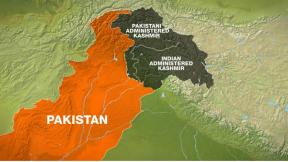
"O ye who believe! Stand out firmly for God, as witnesses to fair dealing, and let not the hatred of others to you make you swerve to wrong and depart from justice. Be just: that is next to Piety: and fear God. For God is well-acquainted with all that ye do." (Quran 5:8)
"That freedom can never be attained by a nation without suffering and sacrifice?we have been through dark days of apprehension and anguish; but I can say with confidence that with courage and self-reliance and by the Grace of God we shall emerge triumphant."? (Muhammad Ali Jinnah, founder of Pakistsan, Lahore October 30, 1947)
The dignity and stability of government in all its branches, the morals of the people, and every blessing of society depend so much upon an upright and skillful administration of justice, that the judicial power ought to be distinct from both the legislative and executive, and independent upon both, that so it may be a check upon both, and both should be checks upon that. (John Adams, Thoughts on Government, 1776)
I recently spoke briefly in a human rights coalition meeting in Chicago about Pakistan. A professor of law then spoke in a passionate way full of praise for Pakistani judges and lawyers, comparing them to their American counterparts. She said that while we are allowing our laws and constitution to be abused without much objection, Pakistani lawyers and judges are refusing to submit to tyranny.
It is simply historic: well-dressed attorneys standing in clouds of tear gas, holding their heads high and demanding justice; lawyers returning fees to their clients since they refuse to accept the current kangaroo courts. Their acts are dangerous but heroic. Forty-eight judges have been detained, more than 3,500 lawyers are among the 15,000 Pakistanis who are arrested. Some are even being tortured for demanding an independent judiciary. This movement may not deliver today, but it will in the long-term insha Allah.
What is happening in Pakistan is just a sideshow of the war on terror.
The tensions with President Musharraf began when the Supreme Court started ordering the release of disappeared persons in the war on terror as it heard habeas corpus petitions. Thousands of Pakistanis, soldiers, fighters and civilians are dying in the war on terror while hundreds simply disappear with no information given about them. Some end up in American custody and then reappear in Pakistani custody. Most are held without any charges and legal process. Guantanamo Bay has more protection for these types of prisoners than those disappearing in the world today. No one was listening to the relatives of these disappeared people when the Supreme Court of Pakistan started ordering their release. Finally, some level of legal process was available to the human rights activists and lawyers through the bold actions of the Supreme Court of Pakistan.
As a result President Musharraf illegally suspended Iftikhar Mohammed Chaudhry, Chief Justice of the Supreme Court, on March 9, 2007. The rest of the judges who heard the government case against the Chief Justice, as required by the constitution, threw out the government case, restoring the Chief Justice. Then came this fresh attack of the dismissal of the justices since President Musharraf suspected that the Supreme Court might rule against him being the army chief and Pakistan?s president at the same time.
Pakistanis, like Americans, are extremely sensitive to issues of injustice and do not respond with passive acceptance. Americans boot out a bad government through free elections. Pakistanis have not always had that opportunity to do so. They have, however, generally had a free media with some government interference and a free judiciary, even during periods of martial law like that of late Zia-ul-Haq in the 1980s and during the tyrannical democracy under late Zulfiqar Ali Bhutto in the 1970s. When detained, Pakistanis would go to the high courts where, via habeas corpus, they were released.
Most Pakistanis have never heard of most of the American Founding Fathers and their argument for an independent judicial branch. Their ethos of justice and fairness, however, are formed by listening to the stories of the Prophet and his companions. Justice is the prime value in Islam. God says that "We sent aforetime our messengers with clear Signs and sent down with them the Book and the Balance, that men may stand forth in Justice." (Quran 57:25). Injustice has been the major complaint Pakistanis have towards their system.
Pakistan is facing today what India went through in the 1970s. Indian Prime Minister Indira Gandhi imposed a state of Emergency in 1975 taking advantage of unofficial civil wars in India across caste, regional and Marxist lines. She suspended laws to fight lawlessness and paid for it eventually with her life. She detained thousands of opposition activists including some of her own disobedient party members. Her draconian emergency measures included forced vasectomy on thousands of fathers; the torture of thousands of activists; the ruthless clearing of slums which left hundreds of thousands of people homeless and thousands killed.
Similarly, today the Pakistani government facing terrorism, is bombing, torturing and detaining its people while denying them justice. Terror in the name of the war on terror and lawlessness to achieve order did not work in the Indian state of emergency and it will not work in Pakistan, although Pakistan does have an acute law and order problem.
While the higher courts in Pakistan have always been independent and non-corrupt, the lower courts are known to be at the center of a police-court corruption axis which makes justice almost impossible and inaccessible. Democracy allows people to punish their leaders for its excesses whereas the judiciary allows individuals to fight for their rights. If both of these processes are unavailable, what course of action will people adopt? These frustrations can eventually force people to violence as happened in India in the 1970s and is happening now in Pakistan and many other countries. This frustration-aggression nexus is the main stimuli for the turmoil of Muslim societies today. Professor Robert Pape?s book Dying to Win makes the same point about the suicide bombers of the world.
The rule of law cannot be ignored while attempting to restore order. Violating laws is not helping America in the war on terror either. It is isolating America in the world instead of isolating terrorists. It did not help India in its moment of difficulty and it will never help Pakistanis who are up in arms for justice. Their mothers have raised them on the Prophet's sayings that the best jihad is speaking truth to a tyrant. That is the reason Pakistanis have called their dictators pharaoh and have side with the likes of Moses in their struggle for freedom.
It is a new movement for Pakistan.
I sat looking at the images of this Pakistan movement. I saw mostly young people. Honorable people, men mostly clean-shaven, but some sporting beards, many women, some with Hijab but most in traditional Pakistani dress. This is the new face of Pakistan.
If these Pakistanis don't give up, it might become the second Pakistan movement which may bypass its corrupt leaders in delivering justice and may in the process nourish democracy in their country with new champions.
Pakistanis are exhibiting the courage and self-reliance necessary for freedom that late Jinnah talked about, with the message of hope that "by the Grace of God we shall emerge triumphant."
Muhammad Ali Jinnah was a lawyer. No wonder this second Pakistan movement is started by judges and lawyers.
Yesterday, as I stood in Chicago City Hall with hundreds of lawyers in support of Pakistan, the keynote speaker was a lawyer who fought the American government for the rights of those imprisoned in Guantanamo bay. I sat wondering how the struggle of lawyers in Pakistan and America is similar when it comes to the war on terror which is spreading lawlessness.?
-----
Read Rose Wilder Lane's book Discovery of Freedom: Man's struggle against authority where she writes about how Prophet Abraham and later, Prophet Muhammad, lead poineering freedom movements. She argues that the American Revolution was an essential part of human beings struggle for freedom throughout history.
Peace and blessings upon all of God's Prophets.
"Minar-e-Pakistan at night Taken on July 20 2005". Licensed under Creative Commons Attribution-Share Alike 3.0 via Wikimedia Commons - http://commons.wikimedia.org/wiki/File:Minar-e-Pakistan_at_night_Taken_on_July_20_2005.jpg#mediaviewer/File:Minar-e-Pakistan_at_night_Taken_on_July_20_2005.jpg








Add new comment